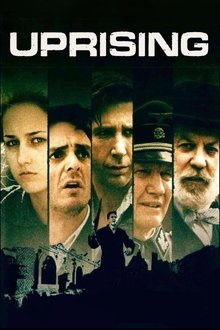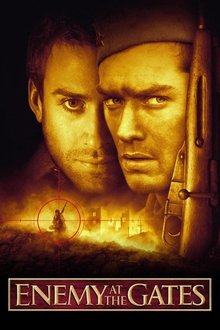Related Movies

MacArthur (1977)
The film portrays MacArthur's life from 1942, before the Battle of Bataan, to 1952, when he was removed from his Korean War command by President Truman for insubordination, and is recounted in flashback as he visits West Point.

Ike: Countdown to D-Day (2004)
The story of the senior-level preparations for the D-Day invasion on June 6, 1944 from the time of Dwight D. Eisenhower's appointment as the Supreme Allied Commander in Europe, to the establishment of the beachhead in Normandy.

Fear and Trembling (2003)
Amélie, a young Belgian woman, having spent her childhood in Japan, decides to return to live there and tries to integrate in the Japanese society. She is determined to be a "real Japanese" before her year contract runs out, though it precisely this determination that is incompatable with Japanese humility. Though she is hired for a choice position as a translator at an import/export firm, her inability to understand Japanese cultural norms results in increasingly humiliating demotions. Though Amelie secretly adulates her, her immediate supervisor takes sadistic pleasure in belittling her all along. She finally manages to break Amelie's will by making her the bathroom attendant, and is delighted when Amelie tells her the she will not renew her contract. Amelie realizes that she is finally a real Japanese when she enters the company president's office "with fear and trembling," which could only be possible because her determination was broken by Miss Fubuki's systematic torture.

Radio Days (1987)
The Narrator tells us how the radio influenced his childhood in the days before TV. In the New York City of the late 1930s to the New Year's Eve 1944, this coming-of-age tale mixes the narrator's experiences with contemporary anecdotes and urban legends of the radio stars.

Straight Shooter (1999)
After his daughter died of cancer, former French foreign legionnaire "Straight Shooter" alias Volker Bretz threatens those who financed, built, favoured and now work the nuclear power plant Atar II to kill one of them each day until the plant is shut down. His former drill sergeant, Frank Hector, who now owns several night clubs and brothels, is the only one who might be able to stop the maniac killing specialist. Frank is flown in instantly, but soon has to find out that his former comrade's actions might be a result from an event long ago.
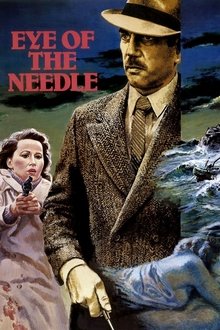
Eye of the Needle (1981)
Great Britain, 1944, during World War II. Relentlessly pursued by several MI5 agents, Henry Faber the Needle, a ruthless German spy in possession of vital information about D-Day, takes refuge on Storm Island, an inhospitable, sparsely inhabited island off the coast of northern Scotland.

Malena (2000)
During WWII, a teenage boy discovering himself becomes love-stricken by Malèna, a sensual woman living in a small, narrow-minded Italian town.
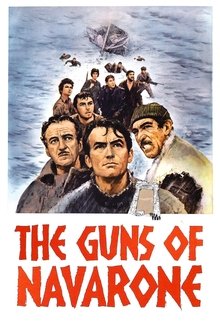
The Guns of Navarone (1961)
A team of allied saboteurs are assigned an impossible mission: infiltrate an impregnable Nazi-held island and destroy the two enormous long-range field guns that prevent the rescue of 2,000 trapped British soldiers.
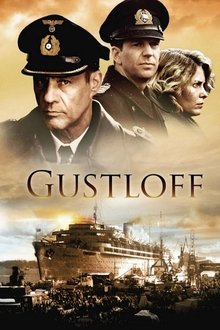
M/S Gustloff (2008)
Joseph Vilsmaier Two-part TV movie focuses on the tragic events surrounding the sinking of the Wilhelm Gustloff, a German passenger ship, at the end of World War II. On 30 January 1945, Captain Hellmuth Kehding was in charge of the ship, evacuating wounded soldiers and civilians trapped by the Red Army. Soon after leaving the harbor of Danzig, it was hit by three torpedoes from the Soviet submarine and sank in less than an hour.
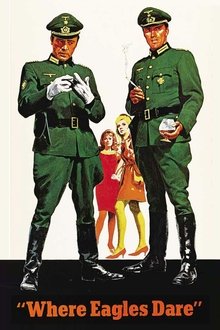
Where Eagles Dare (1968)
World War II is raging, and an American general has been captured and is being held hostage in the Schloss Adler, a Bavarian castle that's nearly impossible to breach. It's up to a group of skilled Allied soldiers to liberate the general before it's too late.
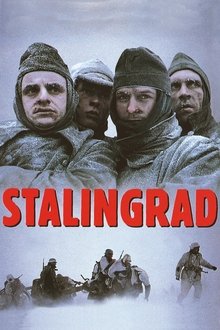
Stalingrad (1993)
A German Platoon is explored through the brutal fighting of the Battle of Stalingrad. After half of their number is wiped out and they're placed under the command of a sadistic captain, the platoon lieutenant leads his men to desert. The platoon members attempt escape from the city, now surrounded by the Soviet Army.

Tora! Tora! Tora! (1970)
In the summer of 1941, the United States and Japan seem on the brink of war after constant embargos and failed diplomacy come to no end. "Tora! Tora! Tora!", named after the code words used by the lead Japanese pilot to indicate they had surprised the Americans, covers the days leading up to the attack on Pearl Harbor, which plunged America into the Second World War.
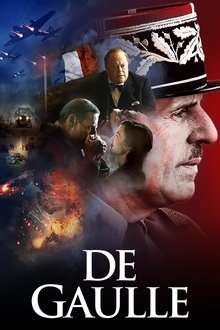
De Gaulle (2020)
Paris, June 1940. The de Gaulle couple is confronted with the military and political collapse of France. Charles de Gaulle joins London while Yvonne, his wife, finds herself with her three children on the road of the exodus.

Nowhere in Africa (2001)
A Jewish woman named Jettel Redlich flees Nazi Germany with her daughter Regina, to join her husband, Walter, on a farm in Kenya. At first, Jettel refuses to adjust to her new circumstances, bringing with her a set of china dishes and an evening gown. While Regina adapts readily to this new world, forming a strong bond with her father's cook, an African named Owuor.

The Dirty Dozen (1967)
12 American military prisoners in World War II are ordered to infiltrate a well-guarded enemy château and kill the Nazi officers vacationing there. The soldiers, most of whom are facing death sentences for a variety of violent crimes, agree to the mission and the possible commuting of their sentences.
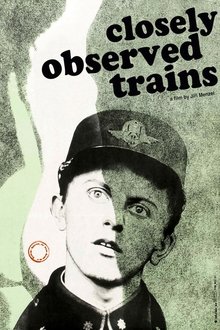
Closely Watched Trains (1966)
At a village railway station in occupied Czechoslovakia, a bumbling dispatcher’s apprentice longs to liberate himself from his virginity. Oblivious to the war and the resistance that surrounds him, this young man embarks on a journey of sexual awakening and self-discovery, encountering a universe of frustration, eroticism, and adventure within his sleepy backwater depot.

Judgment at Nuremberg (1961)
In 1947, four German judges who served on the bench during the Nazi regime face a military tribunal to answer charges of crimes against humanity. Chief Justice Haywood hears evidence and testimony not only from lead defendant Ernst Janning and his defense attorney Hans Rolfe, but also from the widow of a Nazi general, an idealistic U.S. Army captain and reluctant witness Irene Wallner.

The Bridge on the River Kwai (1957)
The classic story of English POWs in Burma forced to build a bridge to aid the war effort of their Japanese captors. British and American intelligence officers conspire to blow up the structure, but Col. Nicholson, the commander who supervised the bridge's construction, has acquired a sense of pride in his creation and tries to foil their plans.
